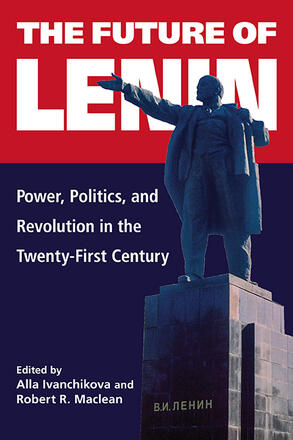
The Future of Lenin
Power, Politics, and Revolution in the Twenty-First Century
Alternative formats available from:
Essays that argue in favor of Lenin's continuing relevance for twenty-first century politics and thought.
Description
Situated in a particular historical moment marked by the violent crises of capitalism—the rise of the alt-right, the COVID-19 pandemic, and the Black Lives Matter movement—The Future of Lenin collects essays by an international cohort of scholars to assert Lenin's relevance for twenty-first-century politics and thought. Taking different and sometimes opposing vantage points on Lenin's value for the future, the contributions to this volume reveal an unexpected Lenin, one who escapes the stale Cold War-era discourse of demonization and hagiography. Instead, the future-oriented Lenin in these pages comes to life as our contemporary: an interlocutor who is surprisingly relevant for Black and anticolonial struggles in the US and beyond; for building the new Left; and for assessing Bernie Sanders' movement as well as alt-right anti-statism. In short, Lenin's concrete development of Marxism for his historical conditions may yet offer lessons for revolutionaries to come.
Alla Ivanchikova is Associate Professor of English and Comparative Literature at Hobart and William Smith Colleges. Robert R. Maclean is an independent scholar.
Reviews
"As an interdisciplinary and globally oriented text, The Future of Lenin provides nuance and complexity to a subject typically met with reductive thinking, ahistorical speculation, and ideological dismissal or praise. The contributions to this edited volume span the fields of political science, literary studies, cultural studies, education, rhetoric, and history, all while reaching beyond the academy to include activists and independent scholars. Unique to the volume, Alla Ivanchikova and Robert Maclean center revolutionary movements beyond the Euro-American spheres of influence by highlighting Black Leninist thinking and action both on the African continent and beyond. " — Jasmine Noelle Yarish, University of the District of Columbia